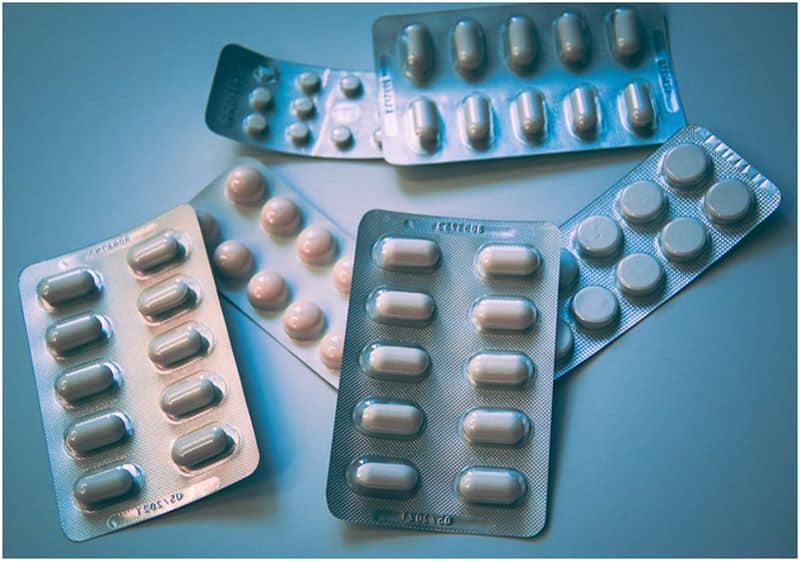Cardiovascular issues have become increasingly common in the modern world. Our stressful lives often cause us to develop hypertension, while our unhealthy eating habits increase fat deposition around our hearts. These factors contribute to the development of heart disease. Fortunately, with progress in pharmacological sciences, heart disease has become manageable if you take your medicines on time.
Medicine for heart disease can often have drastic effects if taken too much. A compounding pharmacy will adjust the dose according to your requirements and offer you medicine in alternative forms, like a liquid or a powder, if you cannot ingest a pill. Tucson residents can search for ‘compounding pharmacy near me Tucson‘ on a search engine and get tailored heart medication. In this article, we’ll explain common medicines given to heart patients and the risks associated with self-medicating or over-taking these drugs.
1. ACE Inhibitors
Angiotensin-converting enzyme Inhibitors, or ACE inhibitors, are the most common heart medicine prescribed. They are the first medication your doctor will give you if they suspect a structural heart disease. If you are prescribed medicines like Enalapril, Ramipril, or Captopril, know you are taking ACE inhibitors.
When your heart is failing, it cannot pump blood properly. As a result, the amount of blood going to your kidney decreases. The kidney produces a hormone called renin when it senses low blood pressure. This hormone acts on a protein called angiotensin I to increase blood pressure. ACE inhibitors block this conversion, stopping the blood pressure from increasing.
Due to these properties, ACE inhibitors are also used for hypertensive patients. By reducing blood pressure, ACE inhibitors reduce stress on the heart and improve cardiac patients’ symptoms. And these meds lower both the severity of the disease and the chances of death.
Remember to take ACE inhibitors (except Captopril) on an empty stomach unless your physician suggests otherwise. Taking ACE inhibitors with food reduces their action. Excessive use of ACE can lead to increased potassium levels in the blood and a dry cough.
2. Beta-Blockers
Beta-blockers are another class of drug commonly given to heart patients, especially those with hypertension. Drugs like Atenolol, Carvedilol, and Metoprolol are beta-blockers. Beta-blockers work by blocking the effects of stress hormones on the heart, slowing down the heart. You may have noticed your heart beats too fast under stress. This leads to a possible injury of the heart muscles, which can worsen your heart disease. When your heart rate is slowed, it needs less oxygen, reducing the chances of an angina attack. That’s not it though, there’s a lot more about heart failure medicines.
Your doctor may give you Carvedilol, which lowers blood pressure, or Metoprolol, which slows the heart rate. A high amount of beta blockers risks stopping heart function completely, so your doctor will start your treatment at low doses and gradually increase it. Since beta-blockers block your sympathetic system, they, especially non-specific beta-blockers, can cause you to feel dizzy and tired. You can also have difficulty sleeping.
3. Diuretics
When your heart is not pumping blood properly, some blood is left stagnant in your body. You’ll feel congestion in your chest or swollen limbs due to this leftover blood. The unpumped blood also pushes against your chest, causing difficulty in breathing or dyspnea.
Diuretics are the first medication doctors prescribe to someone they suspect of heart disease but do not show clinical signs. They facilitate the excretion of this extra blood in urine so it does not cause dyspnea and other clinical symptoms.
Different types of diuretics are available, such as thiazide diuretics and loop diuretics. Doctors generally prescribe thiazide diuretics like hydrochlorothiazide or metolazone for hypertension, and loop diuretics like furosemide or bumetanide for heart failure. Loop diuretics are the most effective, but you should never use them without a prescription.
Too many diuretics can cause a loss of potassium in your body. If your potassium levels are low, your doctor may prescribe a potassium-sparing diuretic like amiloride or spironolactone. They can also cause dizziness, headaches, dehydration, and muscle cramps.
4. Inotropic Drugs
Inotropic drugs increase the power of your cardiac muscle to contract, leading to the more effective pumping action of the heart. Most inotropic drugs increase the calcium concentration in heart cells, which is required for heart pumping.
However, inotropic drugs are extremely unsafe and are usually not the first line of medication. Drugs like digoxin have a low therapeutic index, meaning that even slight increases in the dose can be fatal. Other inotropic drugs include Dobutamine, which is only used in a hospital setting during a heart attack, and inamrinone, which can increase the risk of death if used for a long time.
Endnote
Heart disease is challenging to deal with. Knowing your medicines is best, but remember that taking the wrong medicine or an incorrect dosage can be hazardous for you. Always follow your physician’s instructions and never self-medicate. Make sure you get your medication from a reputable compounding pharmacy on a doctor’s prescription.
Article Submitted By Community Writer




